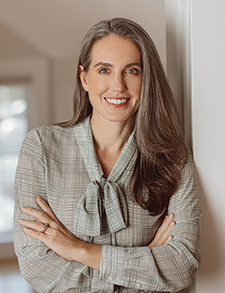Accord-ing to a 2021 Laryngoscope article, “Gender-Based Pay Discrimination in Otolaryngology,” “female otolaryn-gologist are paid 77 cents on the dollar compared to their male colleagues.


Accord-ing to a 2021 Laryngoscope article, “Gender-Based Pay Discrimination in Otolaryngology,” “female otolaryn-gologist are paid 77 cents on the dollar compared to their male colleagues.

Raising concerns about pay equity is a legally protected activity—employers cannot retaliate against you for bringing these issues forward.

When over-the-counter (OTC) hearing aids debuted two years ago, Justin S. Golub, MD, MS, an otology specialist and associate professor of otolaryngology – head and neck surgery at Columbia University in New York, was enthusiastic.

When otolaryngologists leave clinical practice to pursue other vocations, the reasons for making the move vary, as do the factors that might have prevented the transition.

Parental leave policies that include both parents regardless of gender and caregiver status make a cultural statement on the importance of family bonding during the early days of parenthood, provide financial security for families, increase maternal and infant health and well-being, and have the potential to improve gender equity in the workplace.

The evolution of patient care can be caused by technological advancements, patient experiences, peer learning, conferences, and simply the refinement of one’s own surgical skills. The goal, however, remains the same—providing the highest quality care to our patients.

VBC (value-based care) is coming to otolaryngology offices within the next five years through the Centers for Medicare and Medicaid Services (CMS) initiatives, and otolaryngology needs strategies for responding to how value, outcomes, and cost will be captured and measured

Gig work has generally been on the rise, fueled largely by a shortage of otolaryngologists, ENT physicians’ desire to limit demanding call work that can lead to burnout, and the need to fill the gaps while healthcare systems conduct time-consuming searches to staff vacancies.

The Triological Society (TRIO) has been awarded an R25 grant from the National Institute on Deafness and Other Communication Disorders (NIDCD) to establish the Neely National Clinician–Scientist Mentorship Network. This program aims to cultivate the next generation of otolaryngologist–scientists through comprehensive mentorship, training, and networking opportunities. It will be the first national mentorship network for otolaryngologist–scientists.

Fundamental to medical decision making is the challenging task of weighing the benefits against the risks of any given treatment decision. Clinical guidelines and protocols help with this decision making, which is further informed by physician judgment, particularly when the evidence is weak or lacking.